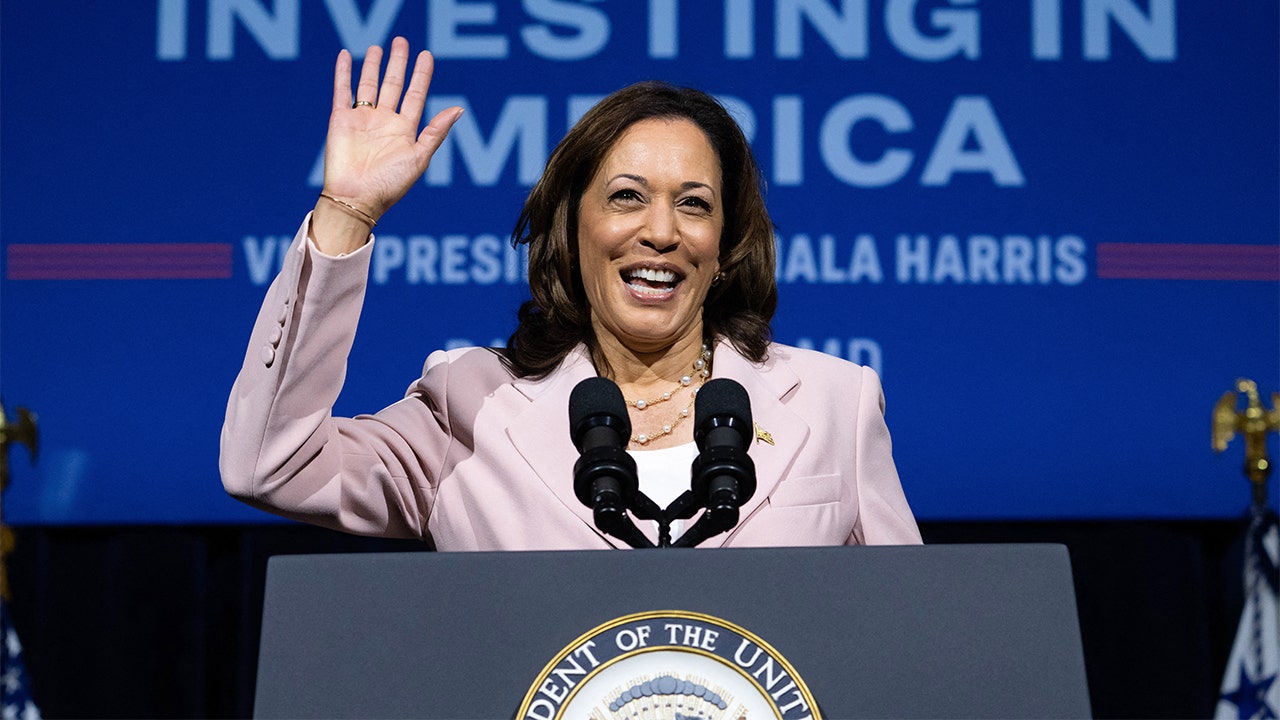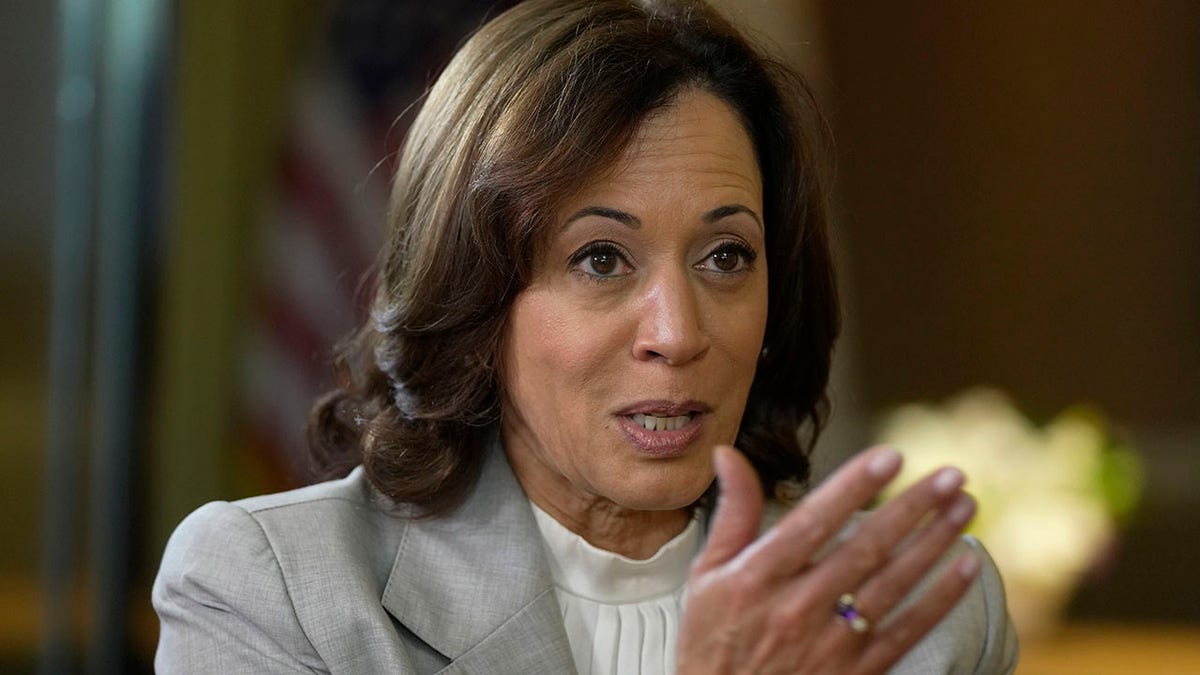Is Kamala An Alcoholic? Unpacking The Controversy And Setting The Record Straight
Let’s cut to the chase, folks. If you’ve been following political discourse—or even just scrolling through social media—you’ve probably stumbled across the question: Is Kamala an alcoholic? It’s a bold claim, one that has sparked heated debates, conspiracy theories, and plenty of misinformation. But before we dive headfirst into this controversy, let’s take a step back and examine what’s really going on. Is there any truth to this claim, or is it just another baseless rumor designed to grab headlines?
Now, I know what you’re thinking: Why does this matter? Well, it matters because Kamala Harris is a prominent figure in American politics. As Vice President of the United States, her personal life is under constant scrutiny, and rumors like this can have real-world consequences. Whether it’s true or not, these kinds of accusations can shape public perception and influence political discourse.
So, buckle up, because we’re about to unpack this controversy with a mix of facts, analysis, and a dash of common sense. We’ll explore the origins of this rumor, the evidence (or lack thereof), and why it’s crucial to approach such claims with a healthy dose of skepticism. Ready? Let’s go!
Read also:Lightning Vs Golden Knights The Ultimate Showdown Every Hockey Fan Needs To Know
Table of Contents
- Background on Kamala Harris
- The Origins of the Rumor
- Is There Any Evidence?
- Separating Fact from Fiction
- How the Media Handles Such Claims
- The Impact of Rumors on Public Figures
- A Quick Biography of Kamala Harris
- Understanding Alcoholism
- Political Implications
- Final Thoughts
Who Is Kamala Harris, Anyway?
Before we dive into the rumor mill, let’s talk about Kamala Harris herself. Kamala Devi Harris is the 49th Vice President of the United States, making history as the first woman, first Black person, and first person of South Asian descent to hold the office. Born on October 20, 1964, in Oakland, California, Kamala grew up in a family deeply involved in activism and academia. Her parents, both immigrants, instilled in her a strong sense of justice and public service.
Kamala’s career has been nothing short of impressive. She served as the Attorney General of California before being elected to the U.S. Senate in 2016. Her run for the Democratic presidential nomination in 2020 ultimately led to her selection as Joe Biden’s running mate, cementing her place in history.
But here’s the thing: Kamala’s rise to power hasn’t come without its share of controversies. From her record as a prosecutor to her stances on various policy issues, she’s been a polarizing figure. And let’s face it, in today’s hyper-partisan political climate, every move she makes is scrutinized—and sometimes misinterpreted.
Where Did the Rumor Come From?
Alright, let’s talk about the elephant in the room. The rumor that Kamala Harris is an alcoholic didn’t just pop up out of thin air. Like most political rumors, it started small and snowballed into something much bigger. Some say it originated from a few isolated incidents where Kamala appeared to be less than alert during public appearances. Others claim it stems from her social media posts or statements made by unnamed sources.
But here’s the kicker: none of these claims have been substantiated by credible sources. In fact, many of the so-called "evidence" pieces are either taken out of context or completely fabricated. Social media, with its fast-paced and often unfiltered nature, has played a significant role in spreading these rumors. A single tweet or video clip can go viral in seconds, reaching millions of people before anyone has a chance to fact-check it.
Is There Any Evidence to Support the Claim?
Let’s get one thing straight: There is zero credible evidence to suggest that Kamala Harris is an alcoholic. Zero. Zilch. Nada. If you’ve seen videos or read articles claiming otherwise, chances are they’re either misleading or outright false.
Read also:Baylor Vs Duke The Epic College Basketball Rivalry That Keeps Fans On Edge
Here’s the deal: Being a public figure means every aspect of your life is under a microscope. A tired expression during a press conference, a sip of wine at a dinner event, or even a momentary lapse in focus can all be twisted into something more sinister. It’s a classic case of confirmation bias—people see what they want to see and interpret it in a way that fits their preconceived notions.
But don’t just take my word for it. Let’s look at the facts. Kamala Harris has never publicly admitted to having a drinking problem. She has never been caught in a scandal involving alcohol. And most importantly, her behavior and performance in office don’t align with the symptoms of alcoholism. Sure, she’s human, and humans make mistakes. But there’s no evidence to suggest that alcohol plays a significant role in her life.
Separating Fact from Fiction
Now, let’s talk about how to separate fact from fiction when it comes to claims like this. First and foremost, always check your sources. Is the article you’re reading from a reputable news outlet, or is it a clickbait site looking to drum up traffic? Are the claims backed by hard evidence, or are they based on hearsay and speculation?
Here are a few red flags to watch out for:
- Unverified sources: If the article doesn’t cite credible sources, take it with a grain of salt.
- Sensational headlines: If the headline seems too outrageous to be true, it probably is.
- Cherry-picked evidence: Be wary of articles that only present one side of the story without offering a balanced perspective.
At the end of the day, it’s up to us as consumers of information to critically evaluate what we read and hear. Don’t fall for the trap of believing everything you see on social media. Do your own research, and always seek out multiple perspectives.
How the Media Handles Such Claims
The media plays a crucial role in shaping public opinion, and unfortunately, not all media outlets are created equal. Some focus on delivering accurate, unbiased information, while others prioritize clicks and ad revenue over journalistic integrity. When it comes to rumors like this, the media can either help or hinder the spread of misinformation.
Responsible journalism involves fact-checking, verifying sources, and presenting a balanced view of the story. However, in the age of 24-hour news cycles and social media algorithms, the pressure to break stories first often outweighs the need for accuracy. This can lead to the dissemination of false information, which can be difficult to correct once it’s out in the wild.
So, what can we do about it? As consumers, we can choose to support media outlets that prioritize accuracy and transparency. We can also hold journalists accountable by calling out misinformation when we see it. It’s not always easy, but it’s essential for maintaining a well-informed society.
The Impact of Rumors on Public Figures
Rumors about public figures can have serious consequences, both personally and professionally. For someone like Kamala Harris, who is already under intense scrutiny, baseless accusations like this can damage her reputation and undermine her authority. It’s not just about her, though—it’s about the trust people have in our political system as a whole.
When false information spreads unchecked, it erodes public trust in institutions and leaders. It creates divisions and fuels mistrust, making it harder for us to come together as a society. That’s why it’s so important to approach these kinds of claims with a critical eye and a commitment to truth.
A Quick Biography of Kamala Harris
To give you a better understanding of Kamala Harris, here’s a quick rundown of her life and career:
| Fact | Detail |
|---|---|
| Full Name | Kamala Devi Harris |
| Date of Birth | October 20, 1964 |
| Place of Birth | Oakland, California |
| Education | Howard University, University of California, Hastings College of the Law |
| Political Career | Attorney General of California, U.S. Senator, Vice President of the United States |
Understanding Alcoholism
Before we wrap up, let’s take a moment to talk about alcoholism itself. Alcohol use disorder (AUD) is a serious medical condition that affects millions of people worldwide. It’s characterized by an inability to control or stop drinking despite negative consequences. But here’s the thing: Alcoholism isn’t something that can be diagnosed based on a few isolated incidents or social media posts. It requires a comprehensive evaluation by a trained medical professional.
Unfortunately, the stigma surrounding alcoholism often prevents people from seeking help. Instead of treating it as a medical issue, society tends to view it as a moral failing. This only exacerbates the problem, making it harder for people to get the support they need.
Political Implications
Finally, let’s talk about the political implications of this rumor. In today’s polarized climate, any accusation—no matter how baseless—can be weaponized for political gain. Opponents of Kamala Harris may seize on rumors like this to discredit her and undermine her leadership. It’s a dangerous game, one that can have real-world consequences for our democracy.
As citizens, it’s our responsibility to demand better from our politicians and the media. We need to hold them accountable for spreading misinformation and encourage them to engage in constructive dialogue rather than mudslinging. Only then can we create a political environment that prioritizes truth and integrity.
Final Thoughts
In conclusion, the claim that Kamala Harris is an alcoholic is nothing more than a baseless rumor. There is no credible evidence to support it, and it’s time we stop giving it attention. Instead, let’s focus on the issues that truly matter—like healthcare, climate change, and economic inequality.
So, what can you do? First, educate yourself. Seek out reliable sources of information and approach claims like this with a critical eye. Second, hold the media accountable. Call out misinformation when you see it and support outlets that prioritize accuracy. And finally, engage in respectful, constructive dialogue with others. We may not always agree, but we can still work together to create a better, more informed society.
Now, it’s your turn. What do you think about this controversy? Do you have any thoughts or questions? Drop them in the comments below, and let’s keep the conversation going. And don’t forget to share this article with your friends and family—it’s time we set the record straight once and for all.
Article Recommendations


